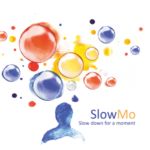
A group of UCL MSc students review a recent mixed-methods study which suggests that online disclosure of negative emotions and experiences (posted to Facebook) are linked with depression symptoms in US college students.
[read the full story...]
A group of UCL MSc students review a recent mixed-methods study which suggests that online disclosure of negative emotions and experiences (posted to Facebook) are linked with depression symptoms in US college students.
[read the full story...]
In her debut blog, Margherita Zenoni explores a mixed methods survey, which finds that social media support groups may be harmful for some people with OCD or related disorders.
[read the full story...]
Imogen Bell blogs about a recent randomised controlled trial of the SlowMo app, which aimed to slow down thinking patterns and correct interpretation biases in people experiencing paranoia.
[read the full story...]
A UCL MSc group of students review a US randomised controlled trial of the ‘Care Ecosystem’; collaborative care for dementia delivered by telephone and internet, which suggests improvements in quality of life and caregiver well-being, and reductions in health service use.
[read the full story...]
Linda Gask reviews a recent randomised controlled trial on the clinical efficacy of a Decision Support Tool (Link-me) to “guide the intensity of mental health care in primary practice”.
[read the full story...]
Douglas Badenoch helps us prepare for another CAMHS Around the Campfire session by tuning into the real effect of smartphone use on parenting; a multiverse analysis carried out by Kathryn L. Modecki and colleagues from Griffith University in Queensland, Australia.
Follow #CAMHScampfire on Twitter at 9.30am BST on Wednesday 23rd June for an online journal club discussing this paper. Or sign up now to join the free webinar hosted by ACAMH.
[read the full story...]
Natalie Berry summarises a meta-analysis which finds a limited body of research exists to support the use of NHS e-therapies for depression, anxiety and stress.
[read the full story...]
In her debut blog, Prianka Padmanathan summarises a recent systematic review on the impact of online sharing and viewing of self-harm–related videos and photographs among young people.
[read the full story...]
A group of UCL Mental Health MSc students summarise a recent pilot study, which explores the acceptability and feasibility of the Texting for Relapse Prevention (T4RP) programme for people with schizophrenia or schizoaffective disorder.
[read the full story...]
Andres Fonseca summarises a recent RCT which finds that apps for depression and anxiety in an IAPT service can be effective and cost effective.
[read the full story...]